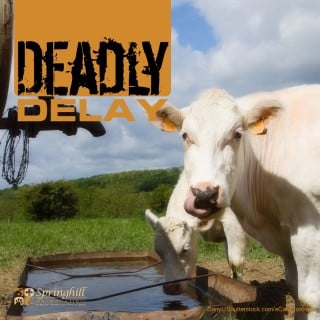Does your dog chew, scratch, whine or bark when left alone? While you may be tempted to conclude he has separation anxiety, it’s important to properly evaluate the behavior to avoid a misdiagnosis and delay in proper training or treatment to correct the issue as many of the behaviors and cues associated with separation anxiety can also be attributed to other medical or behavioral concerns.
Separation anxiety behaviors are very focused, occurring only when the dog is separated from his human. They also seem frantic in nature, and the dog may even show a disregard for personal safety, continuing even through injury to himself such as broken nails, scratches or cuts. A dog with true separation anxiety will focus his destructive behavior on windows or doors, or on attempting to get back to his human, such as escaping from a kennel. Or a dog with separation anxiety may exhibit his stress by eliminating in the house or through excessive vocalization such as barking, whining or howling. However, it is important to determine if the behavior is the result of an outside stimulus, such as cars driving by or the mailman knocking on the door or if it is truly the result of a mild separation distress or a true separation anxiety. In the case of a true separation anxiety, the only thing that will stop the behavior is the return of his pet parent.
When dealing with behavior issues that could be attributed to separation anxiety or another factor, it is important to determine the root cause of the issue. Improperly diagnosing your dog as having separation anxiety can mean inappropriately addressing the behavior and increasing the frustration level for both you and your canine companion while failing to resolve the behavioral issues. By the same token, misinterpreting your pup’s separation anxiety behaviors for other behavioral issues could lead to the sad conclusion that your pup is not a good fit in your home and family and result in his surrender to another family or shelter, increasing his potential for developing true separation anxiety. The suspicion that your pup may have separation anxiety makes it important to consult us or a veterinary behaviorist to verify the concern and set up a program to appropriately address the situation. If your dog is exhibiting signs of true separation anxiety, we urge you to make an appointment to discuss the issue and create a plan to ease his distress. It will take time and patience, but both you and your pup will be happier when he is able to tolerate being left alone.


